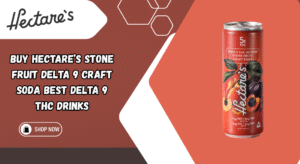Disposable plates have become an essential part of modern living. Whether you’re hosting a backyard BBQ, planning a wedding, running a food truck, or simply looking to avoid dishwashing, disposable plates offer convenience and practicality. Available in a variety of materials, styles, and price ranges, they serve both functional and aesthetic purposes in countless settings.
Why Use Disposable Plates?
Convenience and Time-Saving
The most obvious benefit of disposable plates is convenience. After an event or a busy meal, cleaning dishes can be a hassle. Disposable plates eliminate the need for washing, drying, and storing. They’re especially popular at:
-
Picnics and outdoor gatherings
-
Parties and weddings
-
Office lunches
-
School events
-
Catering services
Cost-Effective Solution
For large events or small businesses, investing in reusable plates may not be economical. Disposable plates come in bulk at a lower cost, making them a budget-friendly option for short-term use.
Hygiene and Safety
Single-use plates help reduce the spread of germs and bacteria, especially in public or high-traffic settings. They are ideal for hospitals, community kitchens, and pandemic-related food distribution.
Types of Disposable Plates
When choosing disposable plates, understanding the material is crucial. Each type has its pros and cons.
Paper Plates
Paper plates are lightweight and affordable. They’re typically coated to resist grease and moisture. However, unless labeled compostable or biodegradable, they may contain plastic coatings that hinder decomposition.
Pros:
-
Affordable
-
Widely available
-
Suitable for light foods
Cons:
-
May not handle heavy or wet foods
-
Less eco-friendly if coated with plastic
Plastic Plates
Plastic disposable plates are durable and come in elegant designs that mimic china or glass. They are perfect for formal events like weddings or corporate dinners.
Pros:
-
Strong and durable
-
Suitable for both hot and cold food
-
Often available in decorative styles
Cons:
-
Not biodegradable
-
Harmful to the environment if not recycled
Biodegradable and Compostable Plates
Eco-friendly plates made from materials like bagasse (sugarcane fiber), bamboo, palm leaves, or cornstarch are gaining popularity.
Pros:
-
Environmentally sustainable
-
Compostable options available
-
Often microwave-safe
Cons:
-
More expensive
-
Not always available in local stores
Foam Plates
Made from polystyrene, foam plates are cheap and lightweight. However, they are not environmentally friendly and are being banned in many cities.
Environmental Impact of Disposable Plates
The growing use of disposable plates contributes significantly to global waste. Millions of tons of single-use plastic and non-compostable items end up in landfills or oceans every year. This makes material selection a key concern for environmentally conscious consumers.
Are Disposable Plates Recyclable?
Not all disposable plates are recyclable. Paper plates with food residue or plastic coatings are usually not accepted in recycling facilities. On the other hand, clean plastic plates (depending on the type of plastic) may be recyclable.
Eco-Friendly Alternatives
If you’re concerned about sustainability, look for products labeled:
-
Compostable: Breaks down naturally in compost environments.
-
Biodegradable: Decomposes through natural processes over time.
-
Certified eco-friendly: Verified by third-party environmental agencies.
Top materials to look for:
-
Bamboo
-
Areca palm leaves
-
Sugarcane (bagasse)
-
Cornstarch
-
Recycled paper
Choosing the Right Disposable Plates for Your Event
Every occasion calls for a different kind of disposable plate. Here’s how to decide:
For Casual Gatherings
Opt for affordable paper or plastic plates. Look for options with sturdy rims and leak resistance.
For Elegant Events
Go with high-end plastic or bamboo plates with decorative touches. Brands now offer premium disposable dinnerware that mimics porcelain or ceramic.
For Eco-Conscious Events
Choose biodegradable or compostable plates made from natural materials. Make sure your guests know where to dispose of them properly to maximize environmental benefits.
For Commercial Use
Restaurants, caterers, and food trucks should choose plates that balance durability, presentation, and eco-friendliness. Bulk buying also helps reduce costs.
Top Brands for Disposable Plates
Several brands have carved a niche by offering high-quality and eco-conscious options. Some popular names include:
-
Chinet – Known for sturdy paper plates, some of which are compostable.
-
Dixie – Offers coated paper plates that are microwave-safe and cut-resistant.
-
Earth’s Natural Alternative – Specializes in biodegradable plates made from sugarcane.
-
Hefty – Provides durable plastic options ideal for heavy foods.
-
GreenWorks – Offers stylish, eco-friendly alternatives made from palm leaves and other natural materials.
Tips for Using Disposable Plates Efficiently
-
Pair with matching disposable cutlery and cups to create a cohesive look.
-
Avoid overloading the plates, especially if using thin paper ones.
-
Use plate holders or trays for added support if necessary.
-
Set up clearly labeled bins for compostable and recyclable waste at events.
-
Buy in bulk for better deals and to minimize last-minute shortages.
Future of Disposable Plates
The future is green. As more people demand eco-conscious products, the industry is shifting towards sustainable manufacturing. Governments and environmental bodies are also encouraging the use of compostable and biodegradable materials.
Innovations are on the rise, such as edible plates and 100% recycled paper options. Consumers now play a major role in shaping demand — making every purchase a small vote for the planet.
Conclusion
Disposable plates have come a long way from simple paper or foam designs. Today, you can find stylish, strong, and sustainable options for nearly every occasion. Whether you’re planning a small picnic or a large formal gathering, there’s a disposable plate solution that matches your needs — and, if chosen wisely, supports a cleaner planet too.







